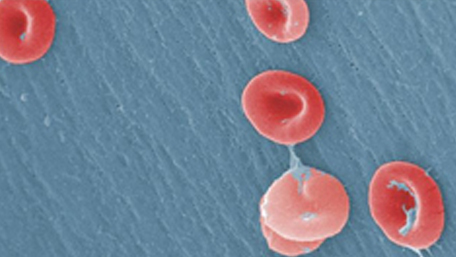
10/30/2019
Hot Topics of the Day are picked by experts to capture the latest information and publications on public health genomics and precision health for various diseases and health topics. Sources include published scientific literature, reviews, blogs and popular press articles.
Sign up MyPHGKB to receive the daily hot topic email alert.
Archived Hot Topics of the Day By Date
Next Generation Sequencing and Bioinformatics Methodologies for Infectious Disease Research and Public Health: Approaches, Applications, and Considerations for Development of Laboratory Capacity.
Maljkovic Berry Irina et al. The Journal of infectious diseases 2019 Oct
Establishing a Multi-Country Sickle Cell Disease Registry in Africa: Ethical Considerations.
Munung Nchangwi Syntia et al. Frontiers in genetics 2019 10943
Why 100,000 poop photos may bring the next big thing in fitness tracking-New crowdsourcing initiative aims to build an app that tracks users' gastrointestinal health
S Salzman, NBC News, October 28, 2019
Does preventive oophorectomy increase the risk of depression in BRCA mutation carriers?
Kotsopoulos Joanne et al. Menopause (New York, N.Y.) 2019 Oct
Calling on Primary Care to Prevent BRCA-Related Cancers.
Armstrong Katrina et al. Journal of general internal medicine 2019 Oct
Standardizing CYP2D6 Genotype to Phenotype Translation: Consensus Recommendations from the Clinical Pharmacogenetics Implementation Consortium and Dutch Pharmacogenetics Working Group.
Caudle Kelly E et al. Clinical and translational science 2019 Oct
Disclaimer: Articles listed in Hot Topics of the Day are selected by Public Health Genomics Branch to provide current awareness of the scientific literature and news. Inclusion in the update does not necessarily represent the views of the Centers for Disease Control and Prevention nor does it imply endorsement of the article's methods or findings. CDC and DHHS assume no responsibility for the factual accuracy of the items presented. The selection, omission, or content of items does not imply any endorsement or other position taken by CDC or DHHS. Opinion, findings and conclusions expressed by the original authors of items included in the Clips, or persons quoted therein, are strictly their own and are in no way meant to represent the opinion or views of CDC or DHHS. References to publications, news sources, and non-CDC Websites are provided solely for informational purposes and do not imply endorsement by CDC or DHHS.
- Page last reviewed:Feb 1, 2024
- Page last updated:Apr 25, 2024
- Content source:






